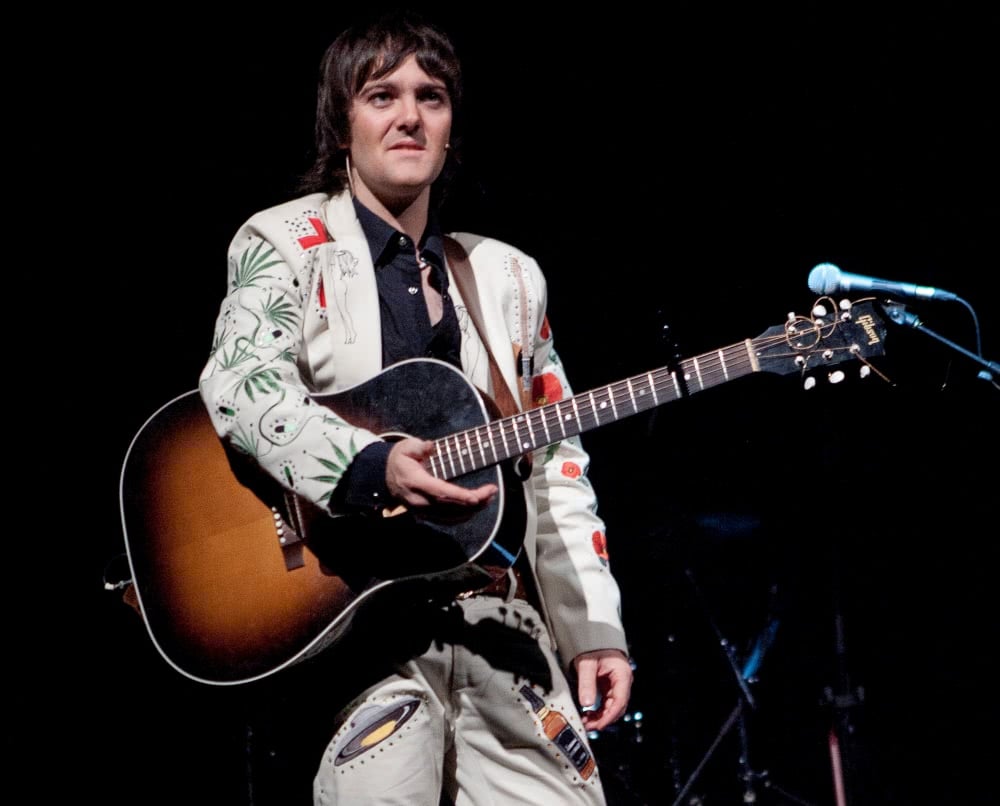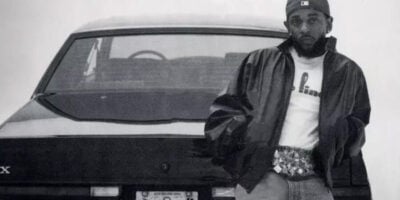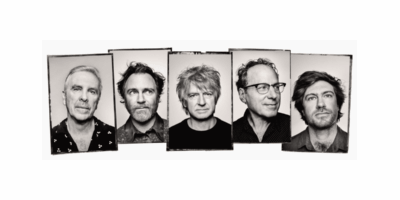The sight of a man stumbling down an aisle with a joint in one hand and a beer in the other seems more appropriate at a rodeo in Moe than it does at Melbourne’s Athenaeum theatre. This perception isn’t helped by the fact the man is wearing what appears to be a fully-tailored nudie suit.
When it comes to staging a show about the life of an American country pioneer, however, such an entrance is not only appropriate, it is fundamental to character development.
Grievous Angel: The Legend of Gram Parsons tells the story of the titular cosmic cowboy, a reckless genius whose 26 years on this earth were spiked with bad luck, tequila shots and some of Americana’s most revered country tunes. He also had a profound influence on the likes of Keith Richards, Neil Young and countless other 1960s heavyweights.
This is an inherent danger in staging a local show that focuses on a deceased artist whose name is barely known outside of US swampland. As a country we tend to cling to familiarity. Thankfully, Grievous Angel works for two reasons; a) Parsons’ enthralling story, and; b) the performance of Jordie Lane in the lead role.
Ultimately, the success of the show rests squarely on Lane’s shoulders. He not only needs to convince loyal Parsons fans of his portrayal, he also must get curious neutral observers to buy into the story. Lane achieves both with remarkable ease.
As a lifelong fan, it would be easy for Lane to water down Parsons’ shortcomings (namely ol’ Gram’s chemical dependencies). Instead, Lane’s far-reaching performance provides a curious case study – was Parsons genuinely cursed by his family’s line of alcohol addiction or was his demise of his own accord?
Interestingly, and slightly disappointingly, the story steers largely clear of Parsons’ actual death, after which his body was taken by manager Phil Kaufman and burned in the desert.
Throughout the two-hour show there are numerous references to Parsons’ interactions with some of the era’s oft celebrated figures. This includes calling The Eagles “fuckin’ jive” for their treatment of country music and, apparently, inspiring the dress code for Peter Fonda and Dennis Hopper in “some motorcycle movie”. While many of these references are integrated to broaden the appeal of the story, they also work to accentuate the impact Parsons had on many influential artists.
The most interesting tale is the brotherhood bond and numerous peyote sessions that occurred between Parsons and Keith Richards. It got to the point where, during a tour of France, a jealous Mick Jagger told a cab driver to take Parsons as far away from the Stones entourage as possible.
Parsons never saw Richards again.
As expected of an artist of his calibre, many of the show’s highlights appear when Lane dives into Parsons’ discography. With the help of Claire Reynolds, who plays long-time collaborator Emmylou Harris, and a tremendous backing band, tracks such as ‘Hickory Wind’, ‘Street Of Baltimore’ and ‘Wild Horses’ (yes, the Stones classic – Parsons co-wrote it) receive the reception they are due.
There is some obvious trepidation for stage – and music fans – to attend Grievous Angel. Gram Parsons is a foreign name and country music isn’t exactly a predominantly popular genre in Australia. However, Lane’s enthusiasm and Parsons’ story makes for a show that deserves significant attention and attendance.
– Paul Bonadio

































